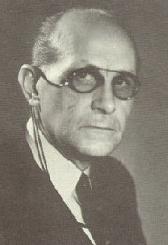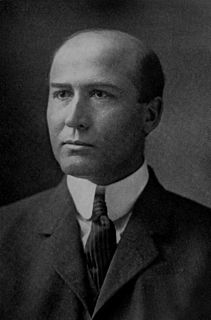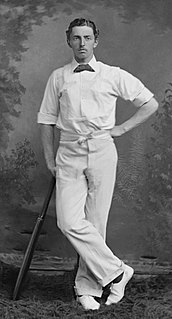A Quote by Alexis de Tocqueville
If it be admitted that a man, possessing absolute power, may misuse that power by wronging his adversaries, why should a majority not be liable to the same reproach? Men are not apt to change their character by agglomeration; nor does their patience in the presence of obstacles increase with the consciousness of their strength. And for these reasons I can never willingly invest any number of my fellow creatures with that unlimited authority which I should refuse to any one of them.
Quote Topics
Absolute
Absolute Power
Admitted
Adversaries
Any
Apt
Authority
Change
Character
Consciousness
Creatures
Does
Fellow
His
Increase
Invest
Liable
Majority
Man
May
Men
Misuse
Never
Nor
Number
Obstacles
Patience
Possessing
Power
Presence
Reasons
Refuse
Reproach
Same
Should
Strength
Them
Unlimited
Which
Why
Willingly
Related Quotes
That Americans are entitled to freedom is incontestable on every rational principle. All men have one common original: they participate in one common nature, and consequently have one common right. No reason can be assigned why one man should exercise any power or preeminence over his fellow-creatures more than another; unless they have voluntarily vested him with it.
The absence of effective State, and, especially, national, restraint upon unfair money-getting has tended to create a small class of enormously wealthy and economically powerful men, whose chief object is to hold and increase their power. The prime need is to change the conditions which enable these men to accumulate power which is not for the general welfare that they should hold or exercise. We grudge no man a fortune which represents his own power and sagacity, when exercised with entire regard to the welfare of his fellows.
When government is invested with money power it rises above the citizen and under the profession of protecting him may actually constitute the greatest threat to his well-being and safety. The power which control of the money system gives to government to interfere in and direct and even take the life of the individual should not exist on this earth. No man or group of men is warranted in holding this terrible power over fellow men.
Not a single one of the doctrines of Marx has ever been accepted by any economist or any philosopher. But what of it? It was necessary that Gaiseric should convince economists or philosophers that there were sound reasons why he should capture Rome. He and his followers wanted it, and they had the power to take it.
It is the consciousness of the threefold joy of the Lord, His joy in ransoming us, His joy in dwelling within us as our Saviour and Power for fruitbearing and His joy in possessing us, as His Bride and His delight; it is the consciousness of this joy which is our real strength. Our joy in Him may be a fluctuating thing: His joy in us knows no change.
The saints should always remember that God sees not as man sees; that he does not willingly afflict his children, and that if he requires them to endure present privation and trial, it is that they may escape greater tribulations which would otherwise inevitably overtake them. If He deprives them of any present blessing, it is that he may bestow upon them greater and more glorious ones by-and by.
Send us people with initiative, who can carry themselves and others too; such as need to be carried hamper the work and weaken those who should be spending their strength on the heathen. Weaklings should be nursed at home! If any have jealousy, prides, or talebearing traits lurking about them, do not send them, nor any who are prone to criticize. Send only Pauls and Timothys; men who are full of zeal, holiness and power. All others are hindrances. If you send us ten such men the work will be done.
The reason why the simpler sort are moved with authority, is the consciousness of their own ignorance; whereby it cometh to pass that having learned men in admiration, they rather fear to dislike them than know wherefore they should allow and follow their judgments. Contrariwise with them that are skilful authority is much more strong and forcible; because they only are able to discern how just cause there is why to some men's authority so much should be attributed.
Thirdly, the supreme power cannot take from any man any part of his property without his own consent: for the preservation of property being the end of government, and that for which men enter into society, it necessarily supposes and requires, that the people should have property, without which they must be supposed to lose that, by entering into society, which was the end for which they entered into it; too gross an absurdity for any man to own.
In our age the common religious perception of men is the consciousness of the brotherhood of man - we know that the well-being of man lies in the union with his fellow men. True science should indicate the various methods of applying this consciousness to life. Art should transform this perception into feeling.
Reckoned physiologically, everything ugly weakens and afflicts man. It recalls decay, danger, impotence; he actually suffers a loss of energy in its presence. The effect of the ugly can be measured with a dynamometer. Whenever man feels in any way depressed, he senses the proximity of something ugly. His feeling of power, his will to power, his courage, his pride - they decline with the ugly, they increase with the beautiful.








































